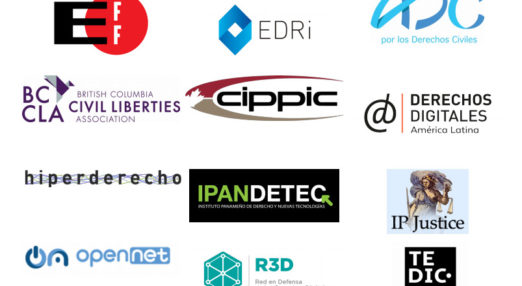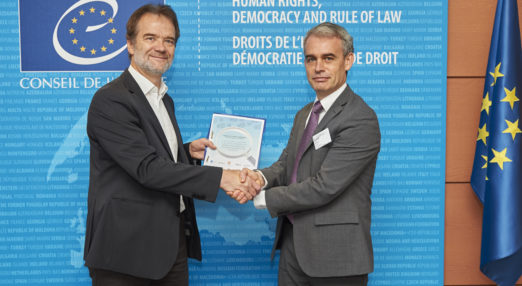Budapest Convention
Filter by...
-

New Cybercrime Protocol will undermine our privacy to compensate for the rising powers of law enforcement authorities
This new international agreement raises serious concerns as its shortcomings promise to undermine the safeguards to our fundamental rights, including our privacy and procedural rights.
Read more
-

New Cybercrime Protocol: weak safeguards against big risks of abuse
In 2017, the Council of Europe (CoE) and its Cybercrime Committee started preparing an additional protocol to the Budapest Convention on Cybercrime – a new tool for law enforcement authorities (LEAs) to have access to data held by private companies in the context of criminal investigations.
Read more
-

New Cybercrime Protocol: More overreach, still no data protection safeguards
In the context of the fifth round of consultation with civil society, data protection authorities and industry, EDRi and the Electronic Frontier Foundation (EFF) coordinated a civil society submission to provide feedback on the new draft provisions relating to joint investigations, request for domain name registration information and expedited disclosure of stored computer data in an emergency.
Read more
-

EU rushes into e-evidence negotiations without common position
On 6 June 2019, the Justice and Home Affairs Council (JHA) – which gathers all EU Member States Ministers of Justice – asked the European Commission to start international negotiations on cross-border access to electronic evidence in criminal matters (so-called “e-evidence”) in the upcoming months. The Commission should enter into bilateral negotiations with the United […]
Read more
-

Safeguarding fundamental rights in the new Cybercrime Protocol
On 20 February, European Digital Rights (EDRi), along with ten civil society organisations from across the globe, responded to a public consultation on the Council of Europe’s Second Protocol to the Convention on Cybercrime (also known as the Budapest Convention). The draft Protocol aims to establish international rules for cross-border access to personal data by […]
Read more
-

Cross-border access to data has to respect human rights principles
The Council of Europe started preparing an additional protocol to the Cybercrime Convention – a new tool for law enforcement authorities (LEAs) to have access to data in the context of criminal investigations. Ahead of the first meeting of the Drafting Group, EDRi coordinated a civil society submission, signed by 14 organisations from around the […]
Read more
-

Cross-border access to data: EDRi delivers international NGO position to Council of Europe
Today, 18 September 2017, a global coalition of civil society organisations, led by European Digital Rights (EDRi), submitted to the Council of Europe its comments on how to protect human rights when developing new rules on cross-border access to electronic evidence (“e-evidence”). The Council of Europe is currently preparing an additional protocol to the Cybercrime […]
Read more
-

Irish ISP introduces child porn blocking – doesn’t know why
The Irish broadband provider UPC has introduced blocking for web addresses that are alleged to contain child abuse material. It chose an interesting moment to do this – with the total number of domains allegedly hosting abuse material half what it was ten years ago and with sites staying online for historically short periods of […]
Read more
